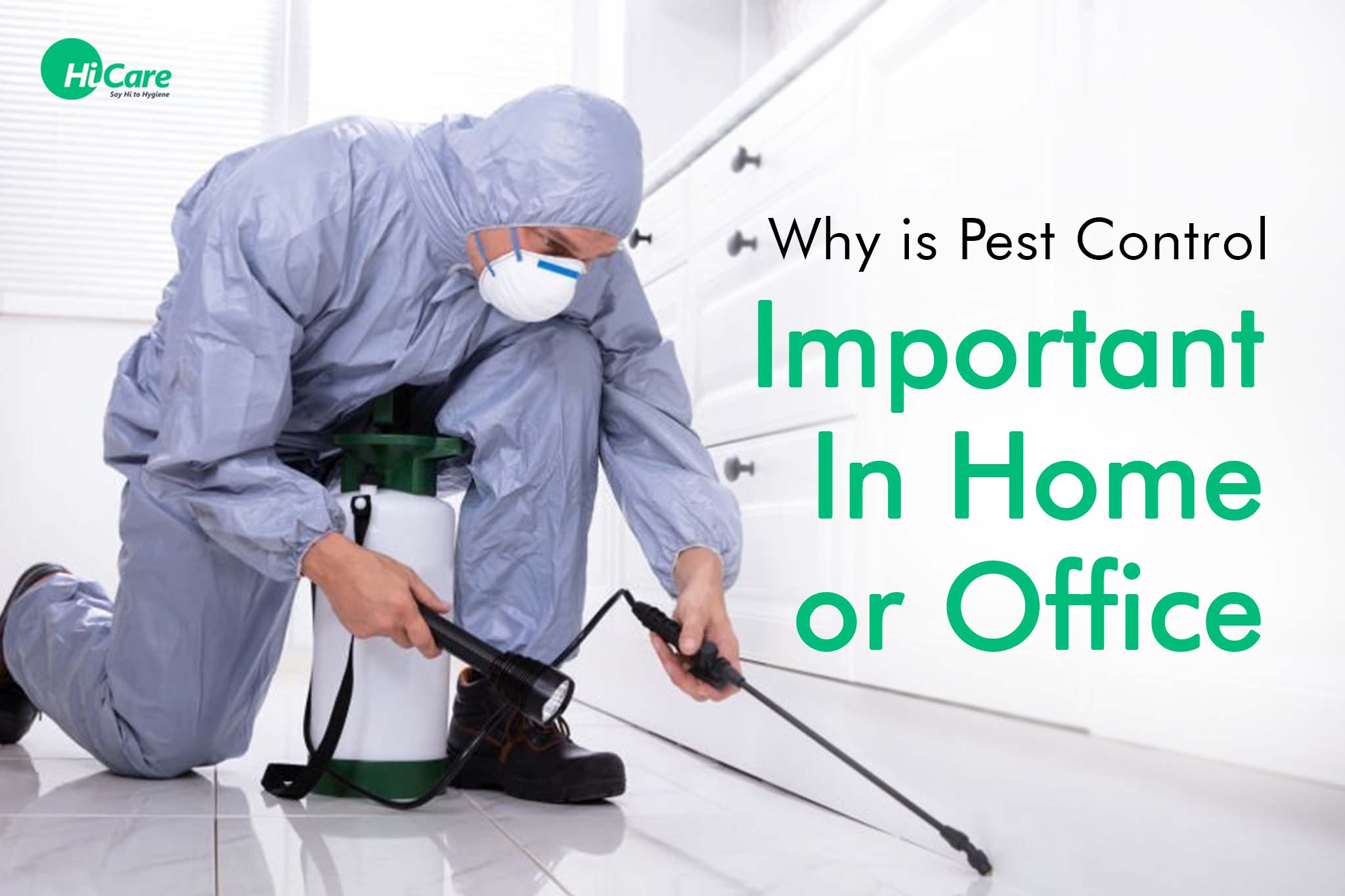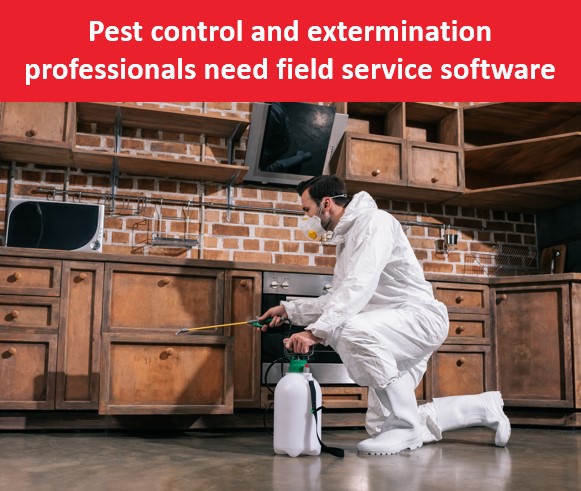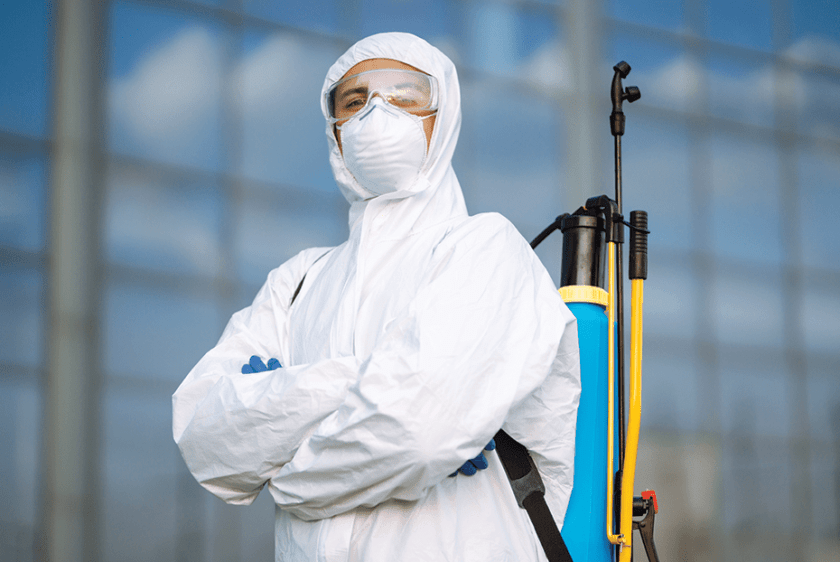Safe and Dependable Bug Control for Lasting Protection
Effective parasite management needs a diverse method that balances eco-friendly honesty with the demand for effective pest suppression. The subtleties of these methods may not be promptly clear, prompting a more detailed examination of the methods that can lead to lasting bug control end results.
Recognizing Pest Control Techniques
Parasite control encompasses a variety of approaches intended at managing and eradicating unwanted pests and rodents that can intimidate both health and wellness and home. Recognizing these methods is crucial for reliable pest administration.
The key classifications of insect control techniques consist of mechanical, organic, and chemical approaches. Mechanical approaches include physical barriers and catches to stop parasite entry and capture unwanted species. Making use of screens on home windows or utilizing sticky catches can considerably minimize bug populations without presenting unsafe compounds - exterminator coquitlam.

Chemical bug control is frequently the most recognized technique, utilizing chemicals to get rid of pests. These chemicals can be reliable yet must be made use of with caution to prevent adverse effects on non-target species and the atmosphere.
Benefits of Eco-Friendly Solutions
Exactly how can environmentally friendly options change bug control practices? The adoption of environmentally friendly bug control approaches provides countless benefits, considerably enhancing the performance and security of insect management (exterminator coquitlam). These solutions use all-natural active ingredients, reducing the dependence on dangerous chemicals that can present risks to human health and the setting. This change not just secures family pets and households but likewise minimizes the possibility for soil and water contamination.

Another advantage is the favorable influence on regional biodiversity. Environment-friendly options are designed to target certain pests while preserving advantageous bugs and wildlife, promoting a balanced ecological community. This technique aligns with the expanding customer demand for sustainable practices, improving the track record of insect control service providers.
Integrated Insect Management Approaches
The application of eco-friendly options normally results in the adoption of Integrated Insect Administration (IPM) strategies, which better boost bug control effectiveness. IPM is an alternative approach that incorporates several techniques to handle insect populaces while minimizing ecological impact. This approach stresses using organic, cultural, mechanical, and chemical controls, ensuring a balanced and sustainable method of pest management.
One basic facet of IPM is the extensive analysis of insect task and environmental problems. By keeping an eye on pest populations and determining their life cycles, experts can apply targeted treatments that disrupt the parasite's habitat or lifecycle, decreasing reliance on chemical pesticides. Furthermore, cultural methods such as plant turning and environment control can significantly decrease bug establishment and recreation.
Another crucial part is using biological control agents, such as beneficial bugs or microorganisms, which can naturally reduce bug populaces. When chemical applications are essential, IPM focuses on using low-risk chemicals and uses them precisely, decreasing exposure to non-target microorganisms and humans.
Including IPM methods not just boosts bug control performance however additionally promotes a safer ecological community, aligning with the growing demand for sustainable techniques in parasite monitoring.
Safe Practices for Property Owners
Comprehending the significance of risk-free practices in bug control can encourage house owners to effectively take care of parasite issues while securing their health and wellness and the atmosphere. click here for more info Carrying out preventive procedures and non-toxic methods is essential in reducing direct exposure to harmful chemicals.
Homeowners must initially examine their setting for problems that draw in insects, such as standing water, mess, and food waste. Regularly cleaning and securing entrance factors can prevent pests from getting into the home. Using natural deterrents, such as vital oils or diatomaceous planet, can provide reliable choices to chemical pesticides.
When chemical treatments are essential, homeowners must choose products that are specifically identified as risk-free for residential use. It is vital to follow application guidelines meticulously to prevent overexposure. In addition, using targeted therapies in areas where parasites are recognized, instead of covering splashing, can substantially minimize chemical usage.
Lastly, maintaining open communication with pest control professionals is vital. Homeowners need to inquire regarding the security of items utilized and request eco-friendly alternatives whenever feasible. By embracing these risk-free techniques, property owners can develop a healthier living setting while hop over to these guys successfully taking care of bug issues.

Tips for Long-Term Defense
Developing an insect management technique that highlights long-term protection can significantly enhance the effectiveness of the risk-free techniques previously reviewed. To achieve this, property owners need to implement routine examinations of their residential or commercial property, concentrating on hidden locations such as attics, cellars, and crawl areas. Early discovery of pest activity is essential in protecting against infestations from holding.
Furthermore, keeping a tidy environment is vital. This consists of proper food storage space, quickly cleaning up spills, and regularly disposing of trash. These practices minimize attractants that attract pests right into the home. Securing entrance points, such navigate here as fractures around home windows and doors, can successfully obstruct prospective insect accessibility.
Landscaping needs to likewise be thought about; keeping plants trimmed and preserving a range between plant life and the home reduces concealing spots for bugs. Using all-natural deterrents, such as essential oils or diatomaceous planet, can better prevent invasions without considering severe chemicals.
Finally, teaming up with a professional parasite control solution for regular analyses can offer an extra layer of safety. These professionals can use customized recommendations and advanced therapies, making certain that your home remains shielded versus insects in the lengthy term.
Final Thought
In final thought, trustworthy and safe parasite control needs a multifaceted technique that highlights green approaches and incorporated pest management. By implementing all-natural deterrents, carrying out normal inspections, and keeping proper cleanliness, residential or commercial property owners can dramatically lower pest populations while protecting helpful pests and the environment. Cooperation with specialist pest control services boosts the efficiency of these approaches, making sure tailored solutions that provide long-term protection and assurance versus future invasions.
Reliable bug administration needs a multifaceted strategy that balances ecological honesty with the need for effective pest reductions. The fostering of green pest control approaches uses various benefits, considerably boosting the effectiveness and safety and security of insect administration.The execution of green services naturally leads to the fostering of Integrated Parasite Administration (IPM) methods, which even more boost bug control efficacy. exterminator coquitlam. By keeping an eye on parasite populaces and identifying their life cycles, professionals can apply targeted interventions that interrupt the pest's environment or lifecycle, lowering dependence on chemical pesticides.In verdict, secure and dependable insect control needs a diverse strategy that emphasizes eco-friendly techniques and incorporated parasite monitoring